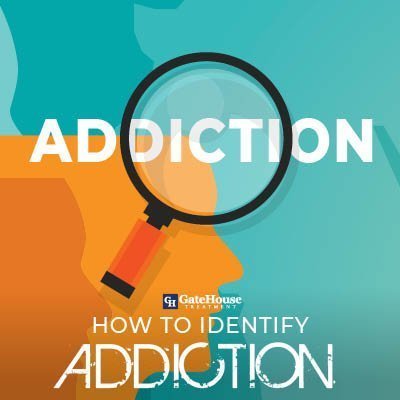
How To Identify Addiction
Substance abuse treatment can be more successful when an alcohol problem or a drug addiction is identified in the early stages. If a person enters treatment centers early, before they hit rock bottom, they’ll typically have an easier time overcoming their addiction. How can you identify drug abuse? What do you do next?Where can I find Treatment Centers? More here, with a section for your questions at the end.
Overcoming drug abuse is one of the best things that a person can do for themselves. Not only will they be able to start working on a healthier lifestyle, but they will also have a safer and more stable home life. So, when identifying drug abuse, how do you start?
If you need to tell if someone has a problem with alcohol abuse or drug addiction, there are a number of physical and behavioral signs that you should watch for. Some of the most common signs are listed below:
- anxiety and irritability
- changes in attitude or friends with no identifiable cause or reason
- confusion
- constant need for money
- hyperactivity or lethargy
- mood swings
- needle marks
- physical withdrawal symptoms when not taking the drug or drinking
- poor work or school performance
- preoccupation with doing or obtaining drugs
- problems with coordination
- red eyes
- runny nose
- tremors and shakiness
- unusual weight loss or weight gain
Before a person can enter drug abuse treatment centers, they must first be diagnosed with a substance abuse addiction. This can be done by a general doctor or an addiction specialist, such as a licensed counselor or psychologist. After undergoing a physical examination or a verbal evaluation, a person will then answer questions about their drug use. The physical examination and the answers to the questions will be used to help a doctor make a diagnosis.
1. Select a treatment program.
Getting a person into treatment centers when they are ready to address their drug abuse, is crucial. Once they are ready to enter treatment, they can meet with an addiction treatment therapist for an assessment. But you probably need to do some groundwork (research) first. Depending on a person’s situation, their addiction treatment plan might include inpatient or intensive outpatient treatment, followed by a stay in a halfway house. Recovering drug abusers can also expect to go to outpatient meetings for months or years after they complete their initial treatment.
2. Plan an intervention.
Unfortunately, many drug addicts may be in denial about having a problem. In this case, they are unwilling to admit to themselves or others that they are addicted to drugs at all, and most likely believe they can stop whenever they want. This typically isn’t the case, and they usually need to be convinced to go into a drug rehab. This is when a planned and supervised intervention can help. During an intervention for the individual who is struggling, loved ones gather together and confront them about how their drug abuse affects everyone around them. Speak with an addiction treatment center or a professional interventionist for more information on interventions, and how an intervention can help to save your loved one.
Help for drug abuse questions
Helping a loved one take the steps to overcome a drug abuse problem can be confusing, frustrating, and heartbreaking. Keep in mind that you’re not alone – we’re here to help you and your loved one every step of the way. If you or a loved one are struggling with substance abuse, reach out us at (855) 448-3588. We can help.
- Cymbalta Withdrawal: Causes, Symptoms, And Management - October 12, 2023
- Boredom in Recovery: 5 Tips to Avoid Relapse - October 6, 2023
- Overconfidence and Rehab: Avoiding Relapse - October 4, 2023




